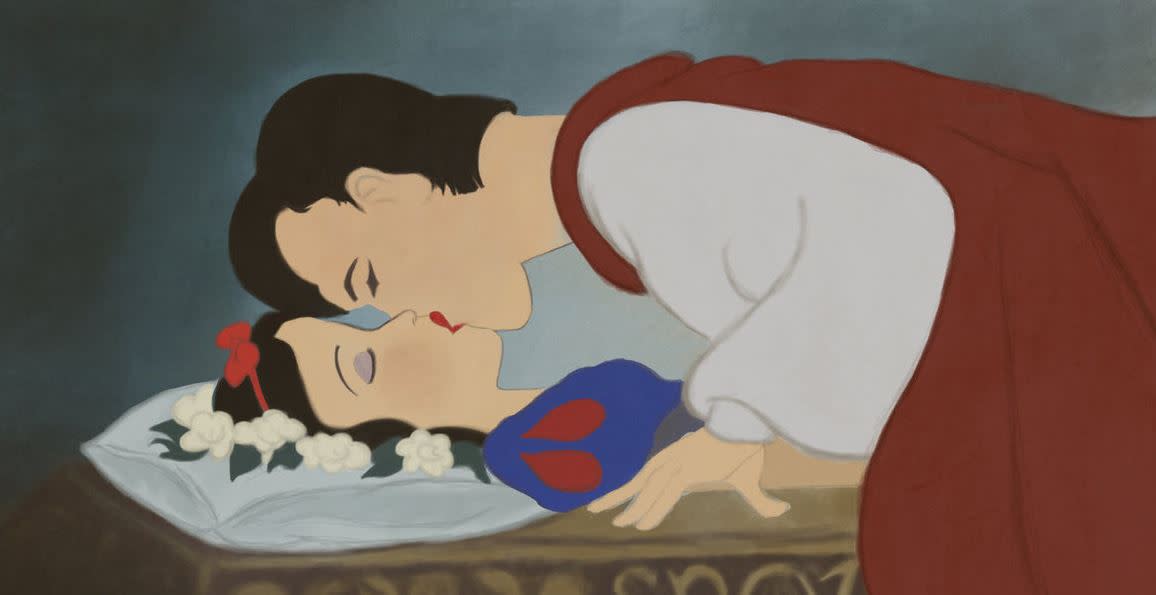Professor says some Disney princes are actually sex offenders

A Japanese professor has claimed that some Disney princes are sex offenders and she might have a point.
Kazue Muta, a feminist academic and professor at Osaka University, came to the conclusion after reading a story about a man who was arrested for kissing a sleeping woman on a train.
Muta – who famously wrote a book about workplace sexual harassment called Sir, That Love is Sexual Harassment! – shared the article and compared the incident to the stories of Sleeping Beauty and Snow White and the Seven Dwarfs.
Translated, her comment read: “When you think rationally about ‘Snow White’ and ‘Sleeping Beauty,’ that tell of a ‘princess being woken up by the kiss of a prince,’ they are describing sexual assault on an unconscious person.
“You might think I’m ruining the fantasy of it all, but these stories are promoting sexual violence and I would like everyone to be aware of it.”
白雪姫とか眠り姫とかの「王子様のキスでお姫様が長い眠りから目覚めた」おとぎ話、あれも、冷静に考えると、意識のない相手に性的行為をする準強制わいせつ罪です。「そんなの夢が無い」との反応あるかと思いますが、逆にこんなおとぎ話が性暴力を許している、との認識に至っていただきたいものです。 https://t.co/8Qn4Fqf2We
— 牟田和恵 (@peureka) December 11, 2017
Her comment sparked an online debate which led to the discussion and criticism of her comments on the Japanese TV channel SoraNews24, according to Fox News. They argued that the princes in Sleeping Beauty and Snow White don’t kiss the sleeping women to be perverted but rather to save their lives and they end up together so the sexual harassment point is moot.
However, Muta offered a rebuttal in an article form for the Women’s Action Network saying that when it comes to sexual assault, the ends should never justify the means.
“There were many critical replies that state ‘Because the princess and prince lived happily ever after in the end, there is a presumptive consent regarding the kiss, so there’s no problem,’” the academic wrote.

“However, this understanding of it is actually dangerous. This kind of thinking fabricates the mindset of ‘the ends justify the means,’ and to what extent does this allow sexual violence to occur?
Muta isn’t alone in her concern about the continued influence of fairytales with problematic imagery and narratives on society, and children in particular. Back in November, a mother called for Sleeping Beauty to be banned at her child’s primary school because of the unconstructive plot point about kissing sleeping girls.
Banning these classic fairytales may be going a bit too far, but there’s certainly no harm in modernising them to reflect what is appropriate in today’s society. That’s what author Stephanie Merritt argues in the Guardian while referencing the shocking sexual assault case which saw US college student Brock Turner given just a three-month jail sentence for raping an unconscious woman.
“Maybe the solution is to reinvent those old tales with a modern twist; Angela Carter did it, as did the Shrek movies, and there’s now a thriving market for books that offer positive role models after the success of Goodnight Stories for Rebel Girls,” Merritt wrote last November.
“Fairy stories have served for centuries as ways of examining our fears; as long as men like Brock Turner still see consciousness as optional in a sexual encounter, it may not be outrageous to suggest that some of the old tropes might stand questioning.”
READ MORE
People are uploading Disney and Hollywood films to Pornhub
‘Star Wars’ franchise is more successful than ‘Harry Potter’
Zendaya says she got to be Spider-Man in ‘The Greatest Showman’

 Yahoo Movies
Yahoo Movies 
